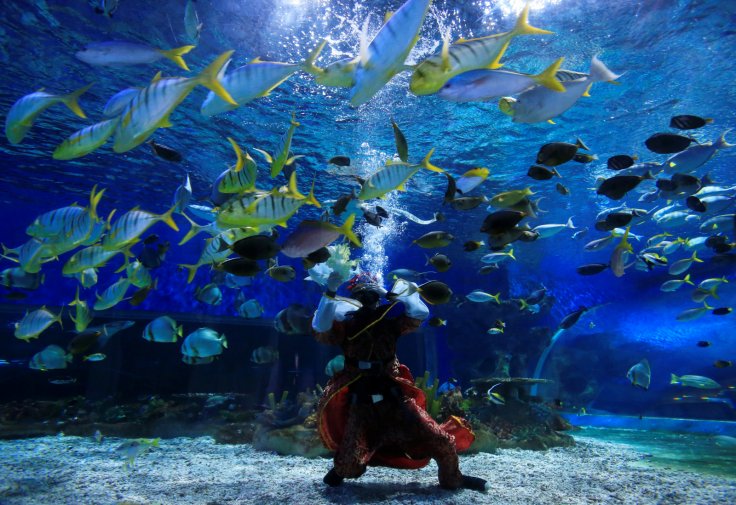
The world knows how coral reefs are dying and how the temperature is rising. But now the ocean scientists claim that the oceans will likely lose almost one-sixth of their fish and other marine animals, if the climate change continues.
Last summer, many reports highlighted that due to the emergence of heat waves many people died, thousands hospitalized, and wildfire destroyed lands as well as animals.
A new study, based on ocean research, showed that for every additional one degree Celsius that the oceans witness, a total mass of sea animals is expected to drop by five percent. This data was collected by an international team of marine biologists who conducted a comprehensive computer-based study that includes effects of climate change on the world's ocean.
This study, published in the Proceedings of the National Academy of Sciences, stated that if the world reduces carbon pollution, then the losses can be limited to almost 5 percent.
However, the study co-author William Cheung, a marine ecologist at the University of British Columbia said, "We will see a large decrease in the biomass of the oceans" if the climate change doesn't slow down.
In terms of the climate change effects on oceans, it should be noted that such drastic change can make waters more acidic and reduces the oxygen level, which will be harmful to marine life.
As per Professor Julia Baum at University of Victoria, "The potential ramifications of these predicted losses are huge, not just for ocean biodiversity but because people around the world rely on ocean resources."
She also added that climate change can cause serious new conflicts over ocean resource use and global food security, that would affect humans because of the growing population.
The study co-author Derek Tittensor, a marine ecologist at the United Nations World Conservation Monitoring Centre in UK stated that the drastic changes in the climate will mostly affect the biggest marine animals.
But the co-author Boris Worm, a marine biologist at Dalhousie University in Canada, said that the plankton and bacteria decline less heavily, while the marine animals that "we use directly, and care about most deeply, are predicted to suffer the most as climate change is working its way up the food chain."
Another study published in the journal Earth's Future showed that the heat waves epidemic "would not have occurred without human-induced climate change."
The Indian capital New Delhi soared to 118.4 degrees fahrenheit Monday, June 10 that is the highest temperature ever recorded in the month of June. Some part of the country also recorded 122 degrees F in recent days.
On the same time, the temperature in San Francisco shot up to 100 degrees F on Monday that is also the highest recorded temperature ever noted in June, July and August.
Even recent studies also showed that South Korea and Japan's southern-central region are frequently affected by the insane increase in temperature.
Researchers found that as of now the world has warmed by approximately 1.9 degrees C since 1880. However, it should be noted that the goal of the Paris agreement on climate change is to keep the global temperature rise to 3.6 degrees C.









